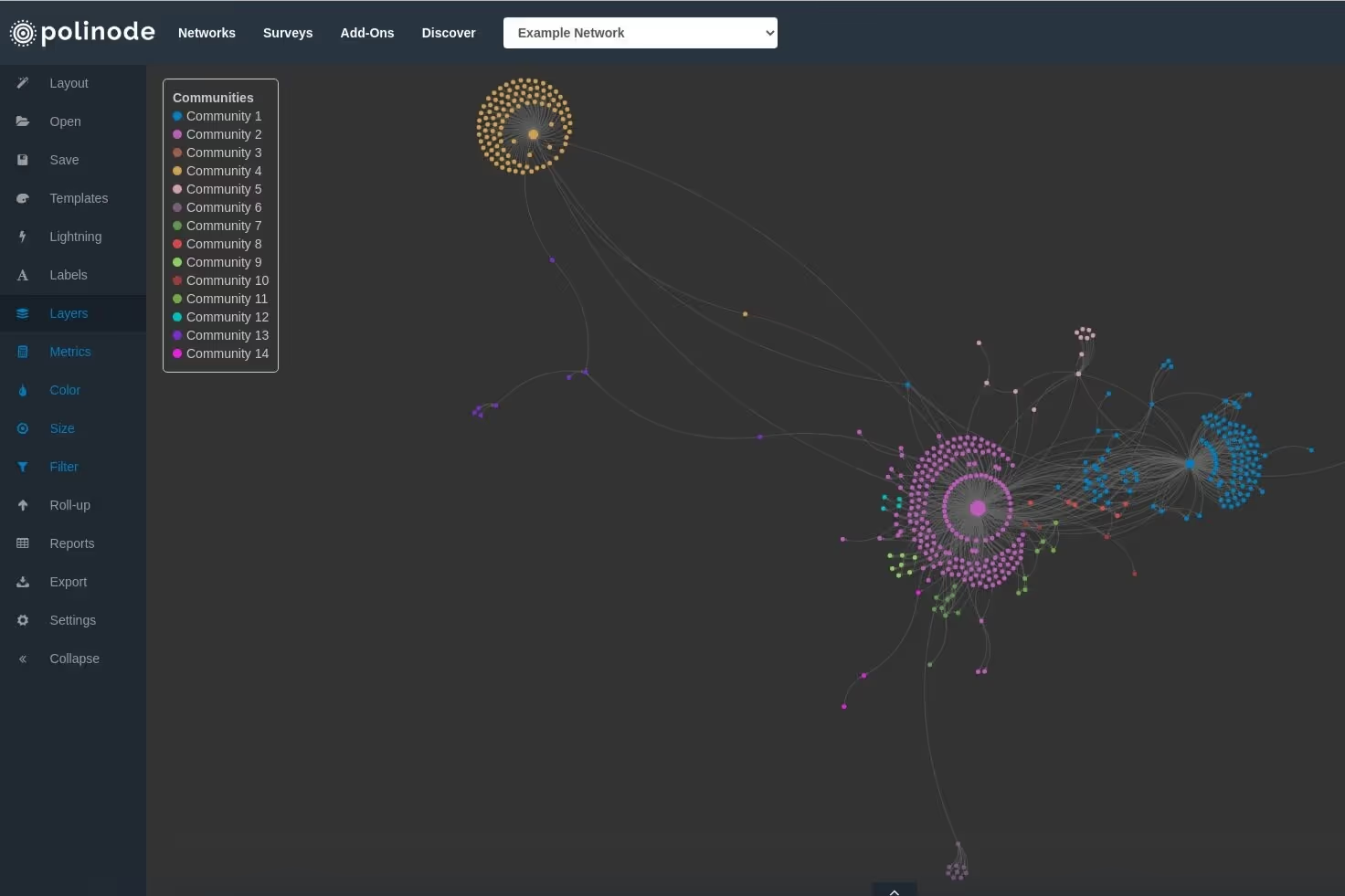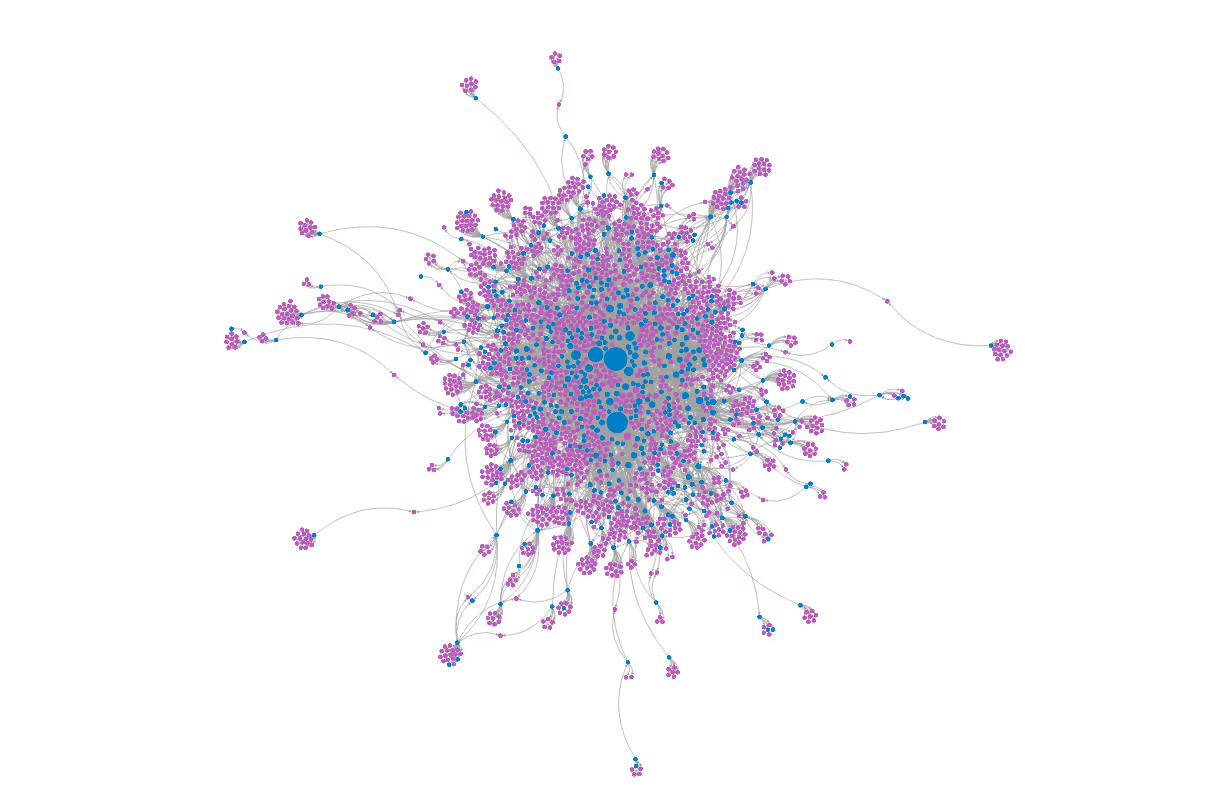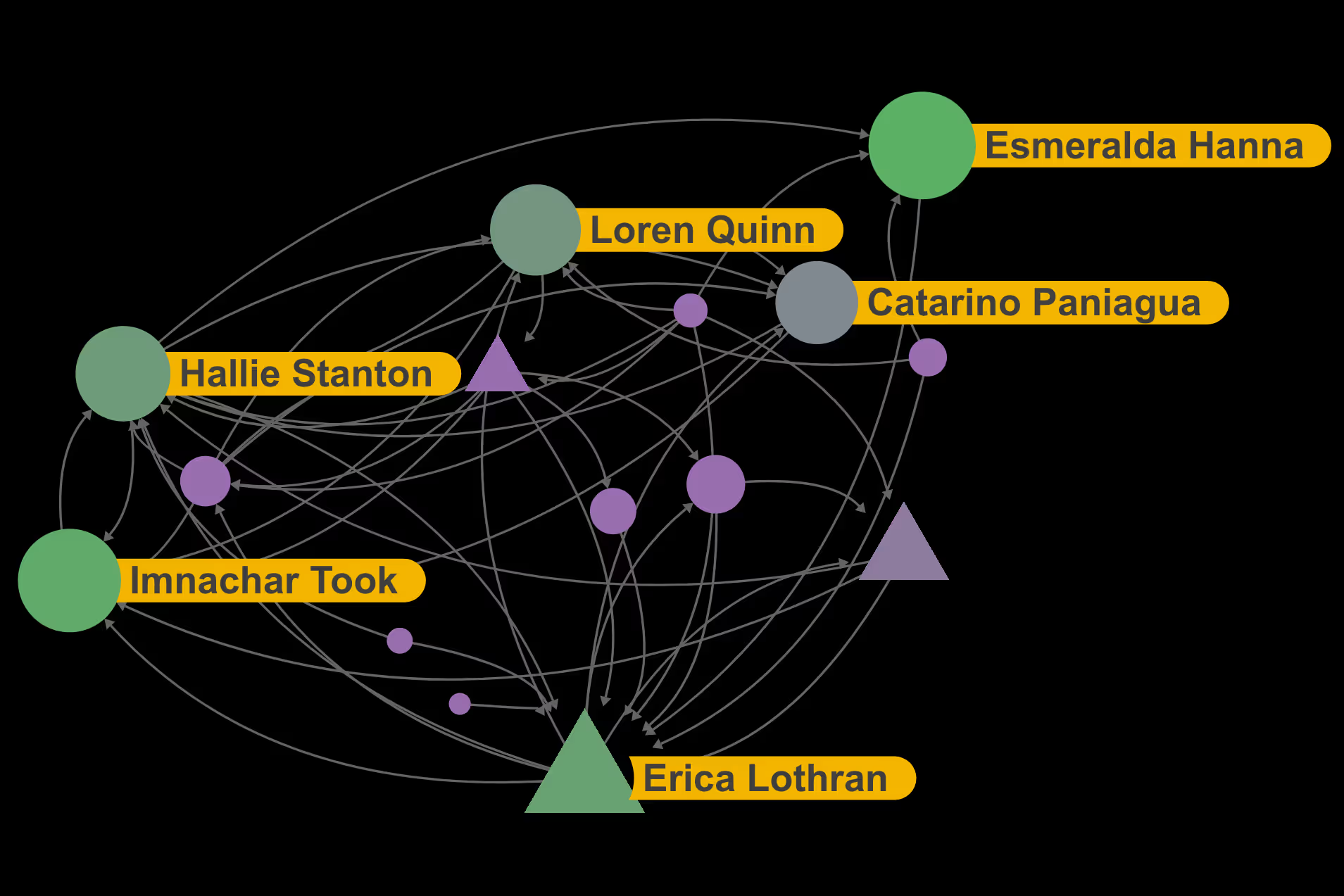Nine months ago we announced an integration between Polinode and Office 365 which enabled our Enterprise users to easily (i.e. in less than five minutes) plug into Office 365 email and calendar data in order to then visualize and analyze that data as networks in Polinode. Today we are pleased to announce that we are bringing the same functionality to Google Workspace (previously G Suite)! For the first time it’s now possible to easily extract metadata from Google Workspace Email and Calendar data and use that data for powerful Organizational Network Analysis.
How it Works
It’s as simple as first providing Polinode with the appropriate access to your Google tenant (read-only and metadata only). After that, an admin user for the tenant simply clicks connect as per the screenshot below.
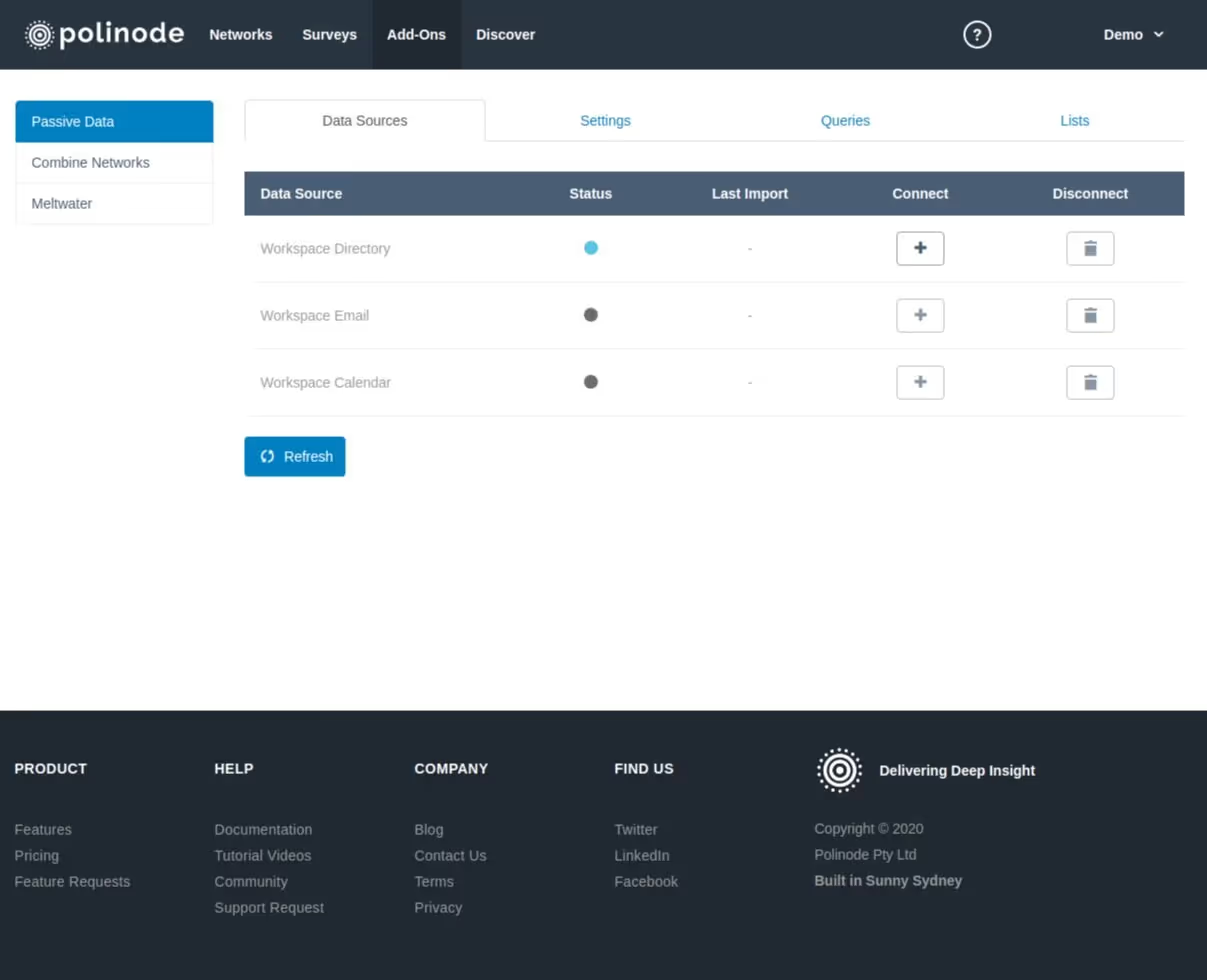
We are able to configure the length of time that we go back to retrieve metadata and also the retention period. If reporting information is included in the Google Directory we are also able to pull that information into Polinode as well.
It typically takes about an hour for the initial data import to run, after which it will be kept up to date on a near real time basis. Once the initial import is completed, you will see a screen like this:
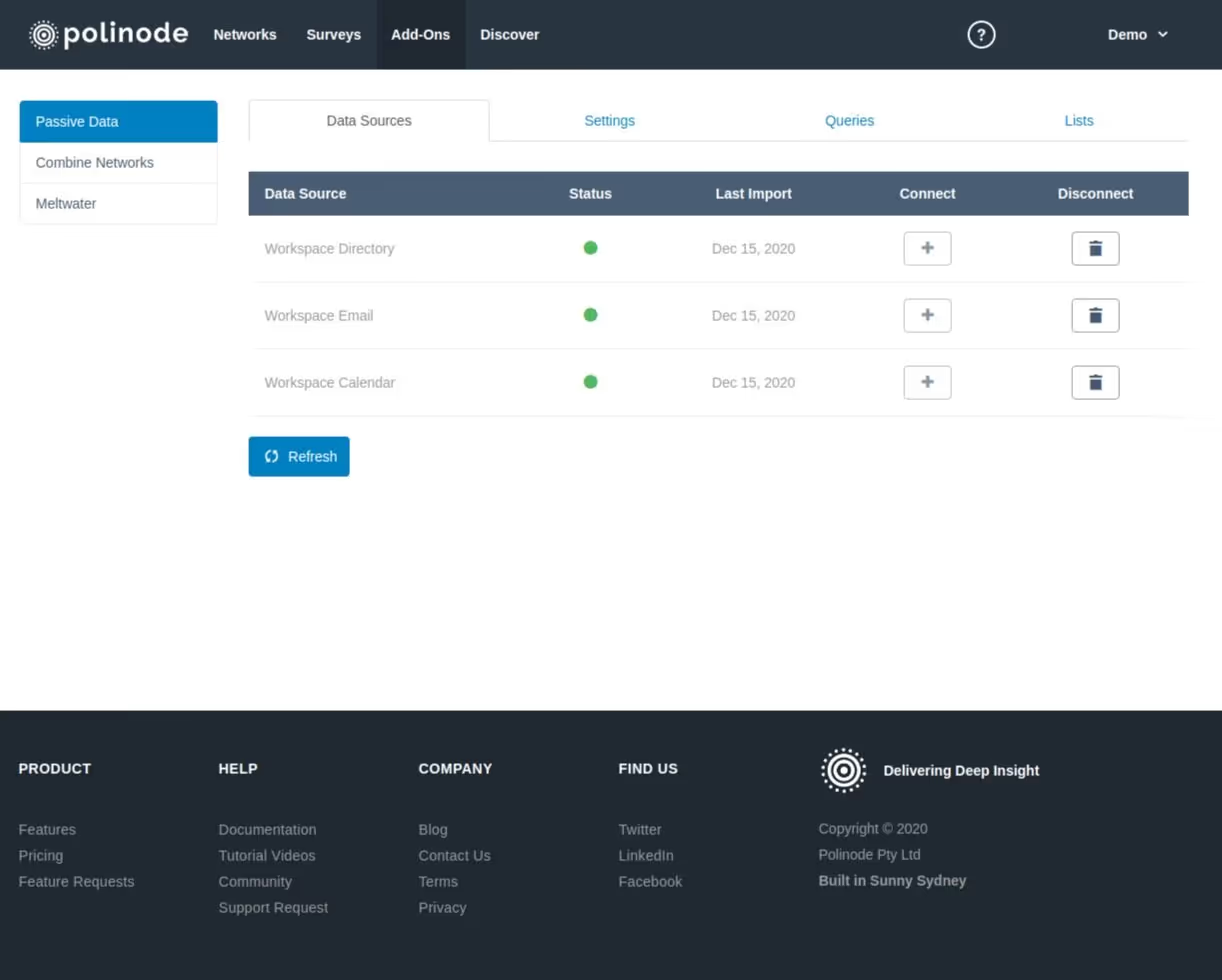
An Example Network
After the initial import, it’s possible to immediately run a query against your metadata in order to visualize and analyze the informal network. The example below is from Google Workspace data where we have sized by total incoming connections and also colored by communities.
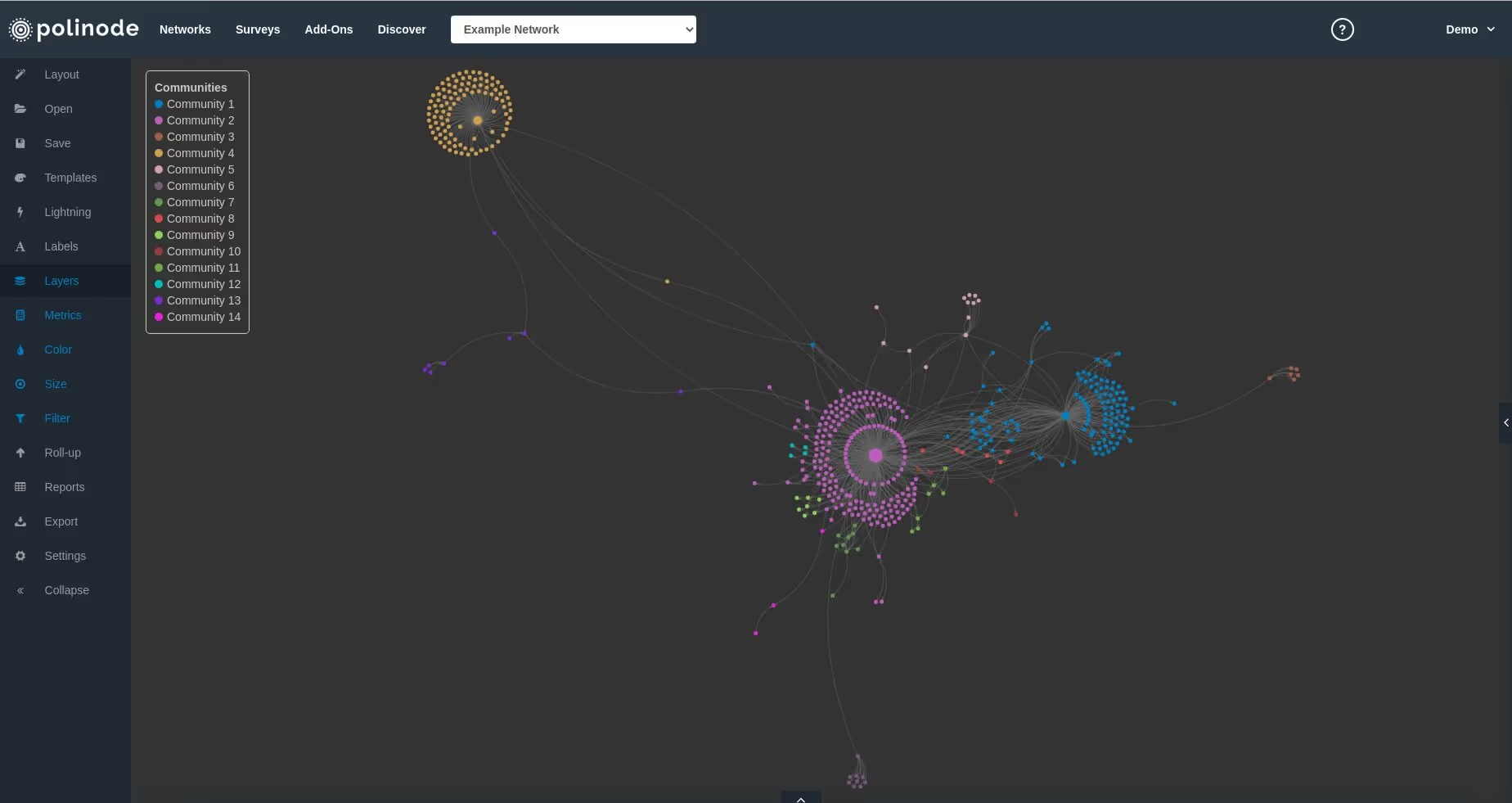
As Google Workspace users ourselves, we are thrilled that we can now support all of the applications of passive Organizational Network Analysis for Google Workspace users, including: understanding collaboration, workplace design, Diversity & Inclusion, identifying overload, succession planning and change management.
Work Patterns Analysis
One of the added benefits of collecting data for passive Organizational Network Analysis is that it also means that that data can be used to analyse work patterns. We make available the ability to export the raw metadata for further analysis and we include in these exports the hour of day and day of week of the interaction for each message / meeting after adjusting for timezones. This makes it possible to investigate things like:
- The workload outside of hours and on weekends
- How have work patterns changed over time?, e.g. with a shift to remote work
- Are there particular groups under high load / at risk of overload?
- The ability for team members to have clear blocks of focus time in their calendar?
- The degree to which teams / groups are multi-tasking during meetings? e.g. sending emails
- Areas of the organisation where regular one-on-ones with manager are happening / are not happening?
- How different work patterns impact engagement?
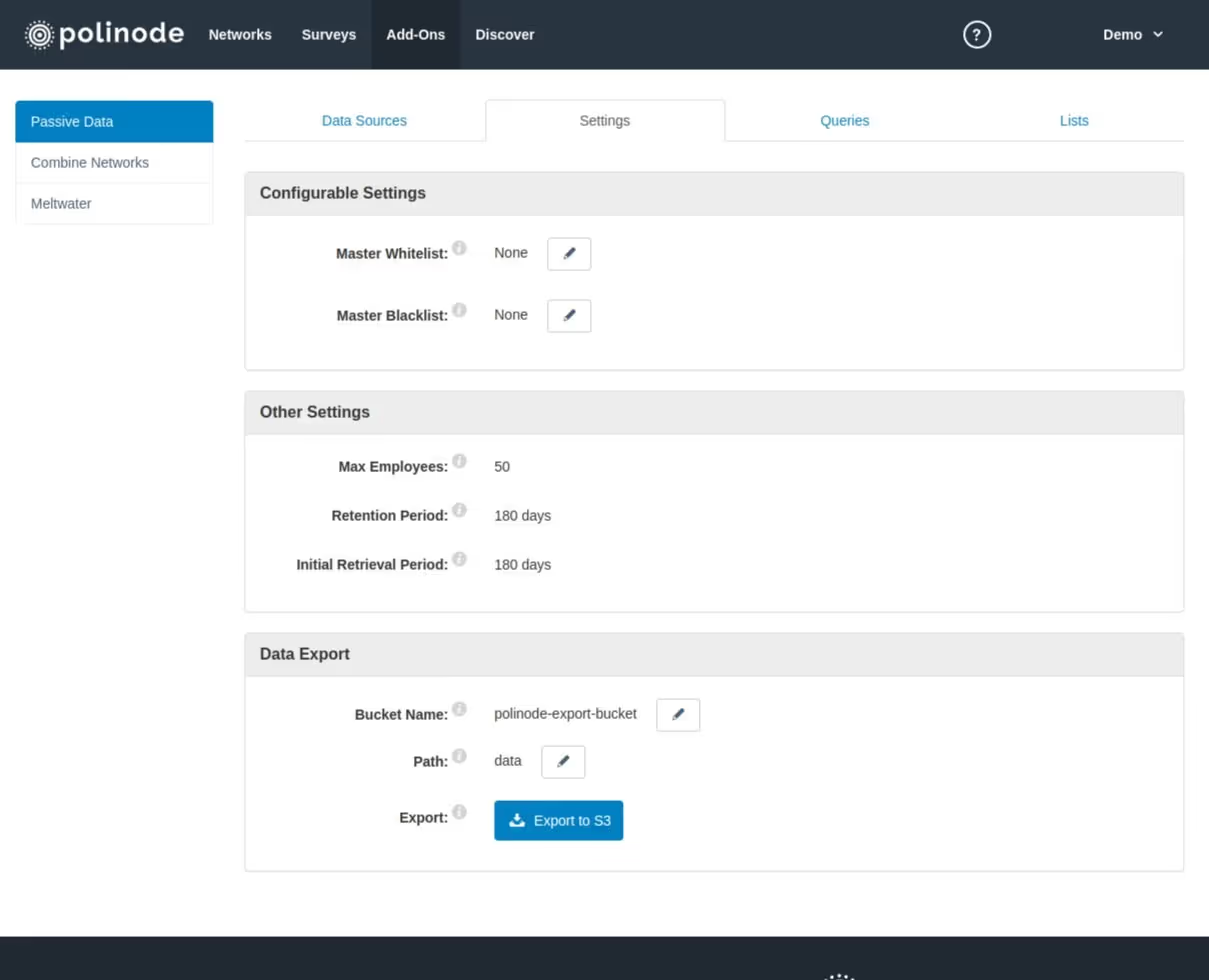
It is of course imperative that this kind of analysis be conducted with the highest ethical standards in mind, i.e. with appropriate anonymisation and protections. We are excited though to be able to support our existing and prospective Google Workspace customers as they seek to answer these and other important questions.
Questions
If you have any questions about this new integration and functionality, please don’t hesitate to get in touch at info@polinode.com for the quickest response.



